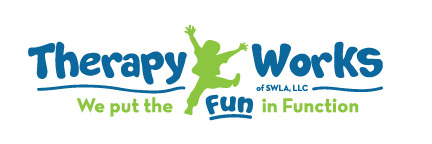Helping Children Communicate
Speech-language pathologists work to prevent, assess, diagnose, and treat speech, language, social communication, cognitive-communication and swallowing disorders in children and adults.
Speech disorders occur when a person has difficulty with:
- articulation (producing speech sounds correctly),
- phonology (using the right speech patterns),
- apraxia (difficulty planning and coordinating the movements needed to make speech sounds),
- fluency (stuttering), or
- voice (problems with the way the voice sounds, such as hoarseness).
Language disorders occur when a person has trouble with receptive language (understanding others) or with expressive language (sharing thoughts, ideas, and feelings). Language disorders may be spoken or written and may involve the form (phonology, morphology, syntax), content (semantics), and/or use (pragmatics) of language in functional and socially appropriate ways.
Social communication disorders occur when a person has trouble with the social use of verbal and nonverbal communication. These disorders may include problems: (a) communicating for social purposes like greeting, commenting, and asking questions, (b) talking in different ways to suit the listener and setting, and (c) following rules for conversation and story-telling.
Cognitive-communication disorders include problems organizing thoughts, paying attention, remembering, planning, and/or problem-solving.
Swallowing disorders (dysphagia) are feeding and swallowing difficulties, and may be accompanied by food aversions. An SLP will help identify what part of the swallowing process is making it difficult for your child to eat (e.g. chewing, manipulating food with the tongue, coordinating mouth and throat structures and muscles, breathing appropriately while eating).
Additionally, Speech Language Pathologists:
- Provide aural rehabilitation for individuals who are deaf or hard of hearing.
- Provide augmentative and alternative communication (AAC) systems for individuals with severe expressive and/or language comprehension disorders, such as autism spectrum disorder or progressive neurological disorders.
Parent Education
In conjunction with therapy, ongoing parent education is important. This service is provided at no additional cost in order to support our families and help facilitate optimal collaboration between the parents and therapists. We spend time at the end of each session discussing progress, concerns and home program ideas. In addition, an initial parent conference is included in the cost of the initial evaluation and is crucial for parent education and effective treatment planning.

